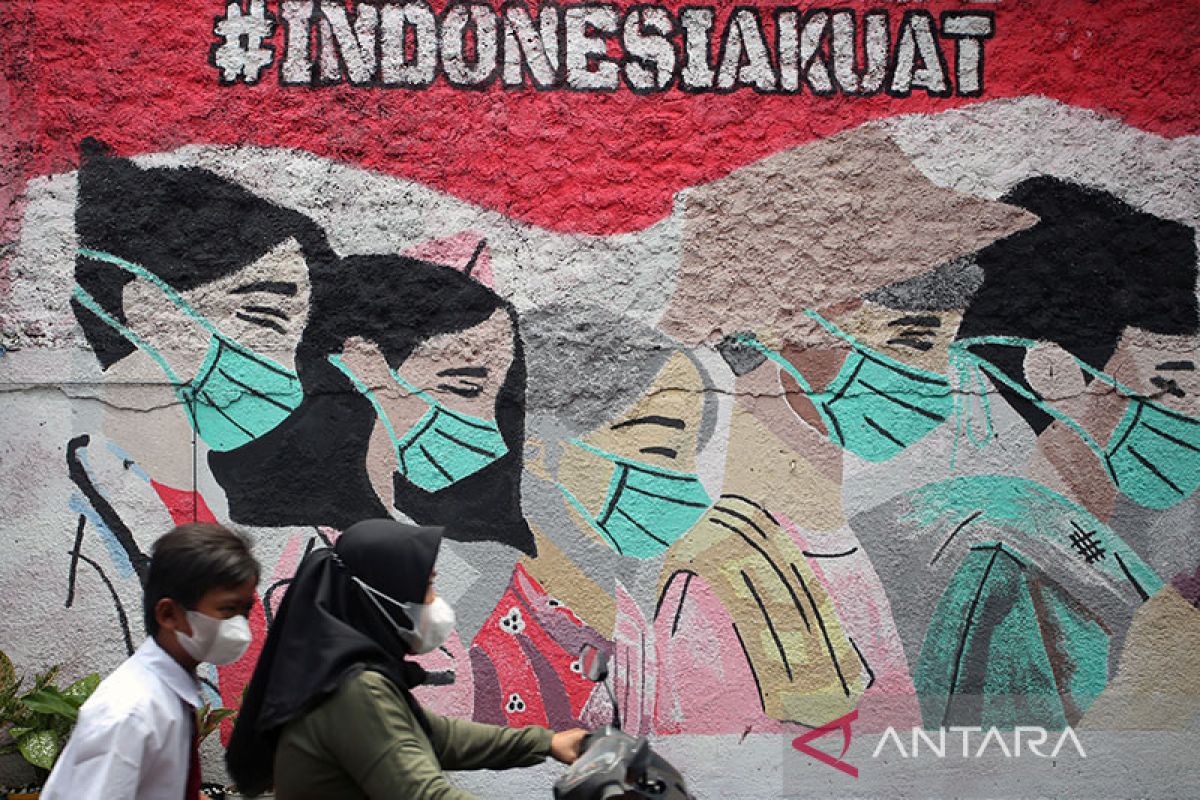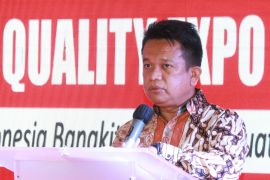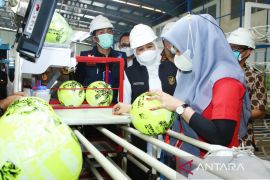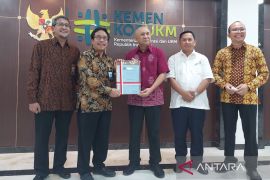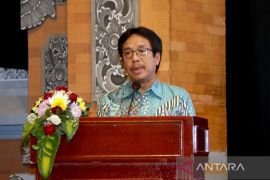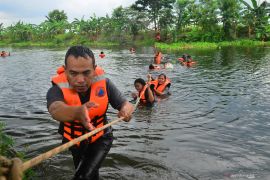The COVID-19 pandemic has caused various losses, especially in the health and economy sectors, due to its quick transmission rate in humans.
The health sector overlaps with other sectors during the COVID-19 pandemic handling. As a result, the health sector cannot be set aside for the sake of continuing economic activities.
As a result, Indonesia's economic growth suffers a major setback that weakens the economy. The rest of the world also suffers from a similar fate.
The household consumption or purchasing power also declines sharply. The prolonged uncertainty caused by COVID-19 also weakens investment.
Moreover, businesses stagnate and even come to a halt, which in the end, leads to work termination.
This major experience has opened the people's eyes even wider to the importance of preparing against unexpected threats.
This includes the possibility of health crisis in the future similar to the COVID-19 pandemic that currently plagues countries across the world.
In addition, Indonesia is a country in a tropical region that has a large population, high population mobility, and abundance of rich biodiversity that includes animal diversity.
With this condition, Indonesia has a risk of becoming a source of a new zoonoses disease infections originating from wildlife.
Uncontrolled forest resources and animal management can also result in Indonesia becoming a hotspot for zoonoses plague.
Based on information from the Health Ministry's official website, a total of 132 zoonotic pathogenic micro-organisms had been found in Indonesia.
Rapid transmission of communicable diseases can cause a plague, extraordinary event (KLB), and even epidemic disaster.
SNI 9050:2022 is introduced in a condition in which a disease plague is not handled well, thereby resulting in escalation of a health crisis, with the infection rate transcending administrative areas across geographical regions.
With this, Indonesia, as one of the disaster-prone countries, is inseparable from the risk of disasters caused by an explosion of communicable disease cases and other health emergencies that threaten the people's lives.
Moreover, due to climate change, disaster risks and communicable diseases' infection will increase, including several disasters during the epidemic or pandemic. As a result, special handling is necessary to manage it.
Epidemic disaster is an unnatural disaster that has no physical form and spreads quickly and sporadically.
Due to rapid escalation of the health crisis, disaster exposes the failure in managing risk in a systemic manner that leads to the loss of lives and affects not only the health sector but also other sectors.
To this end, the escalation of communicable diseases that become a plague or epidemic disaster necessitates cross-sectoral handling and cooperation.
According to BSN Head Kukuh S. Achmad, in a bid to anticipate the epidemic disaster condition, several cross-sectoral resource mobilization mechanisms had been allocated to the state's finance sources.
The funding comes from people and other development partners that can be utilized by each related sector.
However, in general, Indonesia does not yet have in place a standard that can ensure the quality of risk reduction efforts and disaster emergency response to various health risks across different sectors.
Disaster handling standard
Future disaster risks and the overlap between the health sector and other sectors within the scope of COVID-19 pandemic handling becomes a strong source of encouragement for the Indonesian government to formulate a standard for disaster reduction and disaster emergency response.
This is what drove the creation of SNI 9050:2022.
"The establishment of this standard aims to facilitate disaster mitigators in conducting cross-sectoral coordination to anticipate various other health emergency risks in the future," Achmad remarked.
The SNI establishes the execution of an epidemic disaster handling system, not including the transnational pandemic and animal disease plague, as it is still sectoral in nature.
The epidemic disaster handling system includes the entirety of pre-disaster and disaster emergency situation stages.
This standard can be applied and serves as a benchmark for the performance of government and non-government institutions to improve their capacity in prevention, preparedness, and emergency response against disasters.
This mitigation can be conducted independently or through collaboration between sectors.
Currently, SNI 9050:2022 is still in the stage wherein related information is being disseminated to stakeholders, specifically to regions committed to become a disaster resilient village (Destana) role model.
According to National Disaster Mitigation Agency (BNPB) Head Regulation No.1 of 2012, Disaster Resilient Village is a village that has independent capability to adapt to and handle disaster threats.
It is also capable of recovering from adverse effects of disasters.
Ministries, institutions, and regional governments are expected to utilize the SNI as a guideline and reference for laws until the regional government level.
According to BSN Standard Development Deputy Hendro Kusumo, risk-based policy approach to mitigate disaster threat in Indonesia can be a platform for decision makers at the central and regional level.
Early disaster mitigation is expected to minimize the negative impacts and save as many lives as possible.
Several aspects need to be considered in implementing SNI 9050:2022.
These aspects comprise the escalation of communicable diseases and epidemic disasters, especially concerning the determination of plague-stricken regions, and epidemic disaster handling stages, both during pre-disaster and disaster emergency response.
In addition, stakeholders should consider termination of the epidemic disaster emergency status as well as criteria and indicators for the fulfillment of SNI by referring to a result-based management concept.
Epidemic disaster handling stage during the pre-disaster period comprises prevention and preparedness, detection and early warning as well as early handling of epidemic disasters.
Meanwhile, epidemic disaster emergency response encompasses emergency management, infection restriction, rescue and evacuation, risk communication and people's involvement, epidemic disaster emergency handling resource support, and internal audit.
Epidemic disaster emergency status is determined by the president or regional heads based on several indicators that describe the region's capacities.
These indicators involve the availability of resources that can be mobilized for disaster emergency handling, the regional government's capability to activate the disaster emergency handling command system, and the ability to conduct early handling of emergency.
In its implementation, in each administrative area level, disaster emergency status can comprise the emergency response status and emergency to recovery the transition status.
Emergency response status refers to a situation in which a plague or extraordinary event can be classified as an epidemic disaster.
Meanwhile, emergency to recovery transition status refers to a situation in which the escalation of the epidemic disaster declines or ends, but disruption of life still continues.
Through SNI 9050:2022, a uniform guide is expected to be made available for stakeholders in anticipating various health emergency risks in the future.
Through the implementation of SNI, disaster mitigators will conduct coordination between sectors to mobilize resources effectively and systematically with greater ease.
SNI's implementation is also expected to ensure the quality of risk reduction efforts and disaster emergency response against various health threat risks that occur.
Related news: Children most vulnerable group facing global epidemic: Epidemiologist
Related news: Indonesia must produce its own vaccines: Marsudi
Editor: Rahmad Nasution
Copyright © ANTARA 2022
